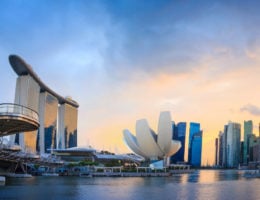The Tripartite Alliance for Fair and Progressive Employment Practices has issued the mandatory Tripartite Guidelines on Flexible Work Arrangement Requests, which will come into effect on 1 December 2024, as announced by the Ministry of Manpower on 16 April 2024.
Earlier this year, the Tripartite Committee released an interim report outlining its 20 recommendations for the proposed Workplace Fairness Legislation.
On 4 August 2023, the committee published its final report setting out its final set of 22 recommendations, following consultation and engagement with various stakeholders including employers, human resources and legal professionals, trade associations and chambers, union leaders, and various community organizations. The Singapore Government has accepted the final recommendations and will work closely with the Tripartite Partners to implement the recommendations in law in 2024.
Baker McKenzie’s Asia Pacific Employers’ Forum took place in Singapore on Thursday, 27 April 2023. You can access a number of related resources relating to employment issues and trends.
The Tripartite Committee on Workplace Fairness has released its interim report on 13 February 2023 with its 20 recommendations for the proposed Workplace Fairness Legislation.
In 2021, the Singapore government announced that it will be taking steps to enshrine the Tripartite Guidelines on Fair Employment Practices (TGFEP) in law. The TGFEP, which is non-legally binding, sets out principles of workplace fairness and best practices for employers. While the TGFEP has improved standards of workplace fairness in Singapore, it does not have legal force. Enshrining the TGFEP in law is a significant step towards strengthening Singapore’s stand against workplace discrimination.
Due to workplace safety and health concerns arising from the lack of improvement in rates of workplace fatalities and a rise in major injuries in certain sectors, the Ministry of Manpower has announced the following:
• A three-month extension to the Heightened Safety Period (HSP) to 31 May 2023. The HSP, which applies across all industries, was due to end on 28 February 2023
• Additional measures adopting the Recommendations by International Advisory Panel to Strengthen Workplace Safety & Health on 19 January 2023
Following the concerns raised by some politicians that the repeal of section 377A of the Penal Code (which criminalizes consensual homosexual acts in private between male adults) may result in employees being pressured to attend their employers’ inclusion and diversity events, the Ministry of Manpower and its tripartite partners the Singapore National Employers Federation and the National Trades Union Congress have added new guidelines to the Tripartite Guidelines on Fair Employment Practices.
The Ministry of Manpower, on 23 November 2022, accepted the 12 recommendations proposed by the Advisory Committee on Platform Workers in its report Strengthening Protections For Platform Workers issued on 17 November 2022. The 12 recommendations in the Report aim to provide basic protections to platform workers in the following areas: (i) adequate financial protection in case of work injury, (ii) improved retirement and housing adequacy, and (iii) enhanced representation.
The Code of Practice: Chief Executives’ and Board of Directors’ Workplace Safety and Health Duties will, when gazetted in October 2022, apply to all directors and equivalent officers involved in policy making and executive decisions for business affairs of companies in all industries, even for companies which have no manual work and little risk of physical injury.
While Hong Kong and mainland China have had anti-discrimination laws in place that protect employees from various types of discrimination at the workplace, recent developments and increasing employee awareness of their rights have led to increased focus on this area. Whilst Singapore does not currently have any workplace discrimination laws per se, there have been some recent developments.
Join us for this webinar where our employment team from Baker McKenzie Hong Kong & China, and Baker McKenzie Wong & Leow will explore the discrimination laws and regulations in China, Hong Kong and Singapore, consequences for non-compliance, and what employers need to bear in mind regarding their human resources policies.
The Singapore government has released White Paper On Singapore Women’s Development on 28 March 2021, the first whole-of-society review of women’s development. Acting on data collected and analysis of feedback on areas where women still face barriers and challenges, the White Paper sets out 25 collective action plans in five main areas to advance women’s development. Employers should note that the first of these areas concerns providing equal opportunities in the workplace, and will involve: strengthening laws to address unfair and discriminatory employment practices, and developing advisories and guidelines to encourage adoption of flexible work arrangements.








